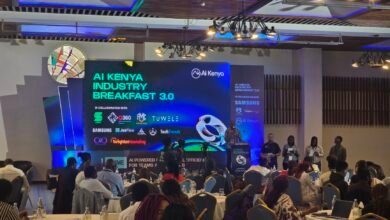
African Union’s Education Agenda Gains Momentum with Calls for a Decade-Long Commitment to Foundational Learning
As the African Union (AU) concludes its Year of Education, African leaders have issued a renewed call to prioritize foundational learning as the cornerstone of the upcoming African Decade of Accelerated Action for Education Transformation, Youth Skills Development, and Innovation in Africa.
This call comes as the African Union Council meets to approve the proposal for a decade-long commitment to education transformation across the continent. Former and current African leaders are pushing for sustained momentum in tackling Africa’s learning crisis, emphasizing that foundational learning is critical for economic growth, productivity, and long-term prosperity.
A United Call to Address Africa’s Learning Crisis
A joint letter to the incoming AU Chairperson, signed by former Presidents Olusegun Obasanjo (Nigeria), Nana Akufo-Addo (Ghana), Ellen Johnson Sirleaf (Liberia), Joyce Banda (Malawi), and Jakaya Kikwete (Tanzania), underscored the urgency of building on the progress made during the Year of Education.
"There is a growing continental consensus on the urgency of addressing our learning crisis. However, as we transition beyond the Year of Education, we must ensure that this momentum is not just maintained but amplified." — African leaders’ joint statement.
The African Union Year of Education, launched in February 2024, has been instrumental in highlighting the transformational impact of equipping young people with foundational skills. A great example of this is Infinix’s collaboration with UNESCO and Google, which brought AI and robotics education to hundreds of students in Nairobi, demonstrating how emerging technologies can enhance learning outcomes across Africa.
At the AU Mid-Year Summit in Accra, Ghana, President Nana Akufo-Addo first proposed the idea of a decade-long commitment to education. This was reinforced in a global press conference where former African presidents collectively urged the AU to take decisive action.
"Foundational learning is intrinsically linked to achieving our broader developmental objectives. Without these skills, our youth will struggle to contribute meaningfully to our economies, participate in democratic processes, and drive technological innovation." — Former African leaders.
Commitments from African Nations to End Learning Poverty by 2035
Fifteen (15) African countries have already committed to eliminating learning poverty by 2035 as a result of the AU’s Year of Education initiative. These nations include:
- Angola
- Cameroon
- Comoros
- Côte d’Ivoire
- Eritrea
- Guinea
- Guinea Bissau
- Lesotho
- Liberia
- Malawi
- Namibia
- Senegal
- South Sudan
- Zambia
- Zimbabwe
Their commitment reflects a broader recognition that education is fundamental to achieving the African Union’s Agenda 2063 – a vision for a prosperous, integrated, and peaceful Africa driven by its citizens. A strong example of such success is the Equity Leaders Program, which has enabled over 100 African scholars to gain admission to top global universities, proving that investment in foundational learning yields tangible results.
The Role of South Africa in Driving the Foundational Learning Agenda
South Africa’s President Cyril Ramaphosa has also demonstrated strong leadership on this issue. In his recent State of the Nation Address, he reaffirmed the country’s dedication to tackling the learning crisis:
"We will focus on ensuring that every child can read for meaning in the foundation phase to set them up for success in later years. To achieve this, we are implementing mother tongue-based bilingual education to improve literacy and numeracy outcomes, and rolling out lesson plans, reading books, and other interventions that have been proven to work." — President Cyril Ramaphosa.
To ensure sustainable progress, Zambia’s President Hachim Hichelimina emphasized the need for evidence-based policies, strong tracking systems, and data-driven decision-making. This aligns with efforts like Huawei’s partnership with Kenya TVET institutions, which equips trainers with AI and data skills to improve learning outcomes.
Three Key Policy Proposals to Transform African Education
To institutionalize foundational learning within the African Union’s education framework, African leaders and policymakers have proposed three major initiatives:
1. Establishing a Continental Accountability Mechanism
- The African Union should create a tracking system to monitor foundational learning outcomes across the continent.
- This mechanism would include regular progress reporting, allowing for data-driven education policies.
2. Strengthening the Continental Education Strategy for Africa (CESA)
- Foundational learning should be deeply integrated into the next phase of the Continental Education Strategy for Africa (CESA).
- The strategy must address historical inequities in education while prioritizing cost-effective, evidence-based interventions that have shown success in different African contexts.
3. Leveraging South Africa’s G20 Presidency to Push for Global Recognition
- South Africa’s G20 Presidency in 2025 presents a unique opportunity to place foundational learning on the global agenda.
- This initiative aims to position quality education as a fundamental right and a matter of global justice, ensuring that investments in education are seen as a key component of reparative justice for Africans and people of African descent.
Final Thoughts: A Decisive Moment for African Education
The African Union’s commitment to the Decade of Education presents a historic opportunity to transform the continent’s education systems. With strong political will, strategic investment, and global partnerships, Africa can eradicate learning poverty, drive economic transformation, and empower future generations.
The upcoming African Union Heads of State Summit on February 15-16, 2025, will be a critical moment to formalize this commitment. If successfully implemented, the African Decade of Education could become a turning point in Africa’s journey toward sustainable development.
As the call to action gains momentum, the next steps will depend on how effectively African leaders mobilize resources, strengthen accountability, and ensure that foundational learning remains a top priority in policy and governance.






